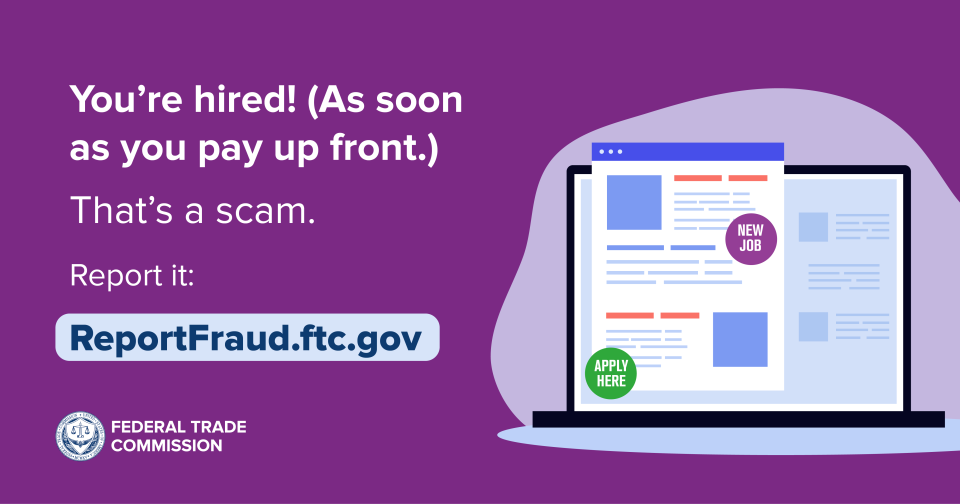Scammers are using the names of well-known employers to post job openings that don’t exist. The purpose? Tricking you into sending them personal information or money upfront to get the job.
The phony postings are hard to pass up. They offer great pay, telework options, and money to set up a home office. But here’s an example of how the scam works. First, they get your information and send you a check for, say, $4,000. Once the check “clears”, they tell you to keep $1,000 as a salary advance, and send back $3,000 — supposedly to get a computer and office equipment. But the job and the equipment never appear. And sadly, when the bank realizes the check is fake, you’re out of the job and now $3,000 in debt.
To avoid similar job scams:
- Verify job openings before you apply. Visit the official website for the organization or company you’re applying for. Most include a “career opportunities” or “jobs” section.
- See what others are saying. Look up the name of the company along with words like “scam,” “review,” or “complaint.” The results may include the experiences of others who’ve lost money.
- Don’t pay for the promise of a job. Legit employers will never ask you to pay to get a job. Anyone who does is a scammer.
- Never deposit a check from someone you don’t know. An honest employer will never send you a check and then tell you to send them part of the money. That’s a fake check scam.
If you paid a scammer, call the company you used to pay right away (the gift card or money transfer company, for example). Ask them to reverse the charge. To learn more about how to reverse different types of payments, read What to Do If You Were Scammed.
Unsure about where to kick off the job search? Check out a few places to start. Spot a job scam? Tell the FTC at ReportFraud.ftc.gov


thank you for heads up on job scams!!
I constantly get cyber criminals sending me emails messages for my information Some claim to be government officials, the IRS, Amazon, banks re my accounts that I don’t have
I reported it to FTC but they continue because they are never held accountable. They just keep getting away with their crimes destroying other peoples lives. We need severe enforcement for them or they will keep doing it